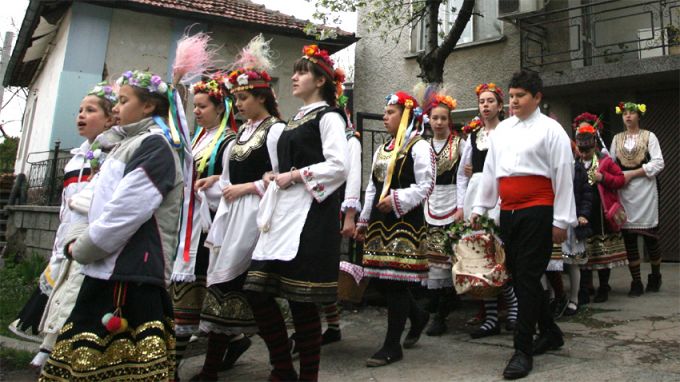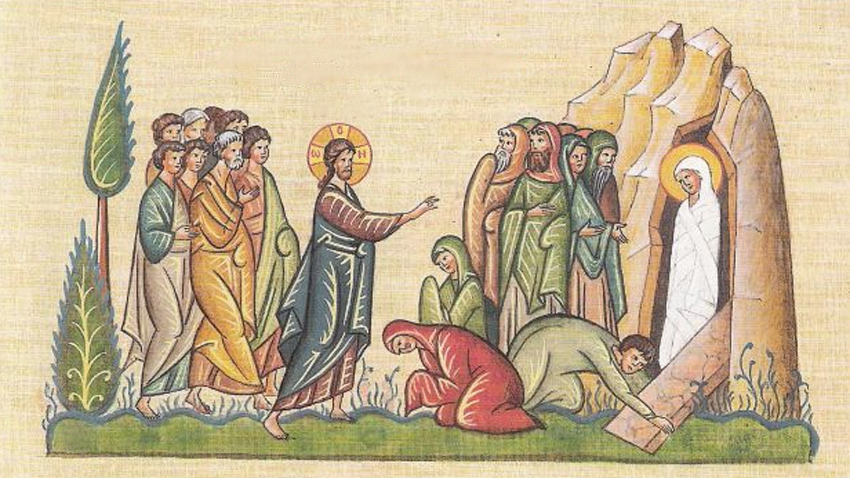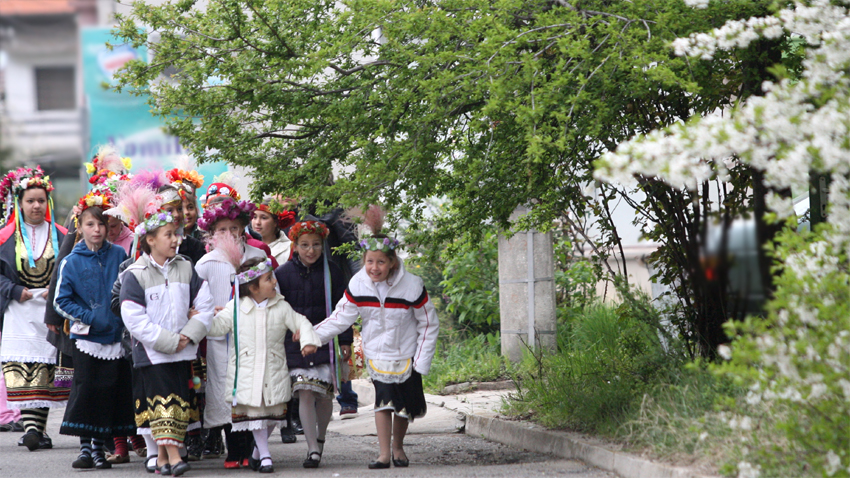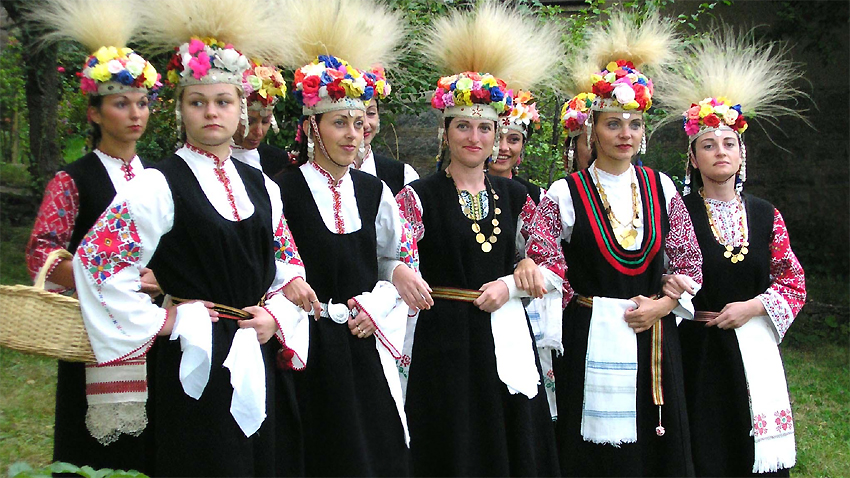 3
3
 “Lazarus, come out!” Christ spoke to his friend and the miraculous resurrection took place. A day before Palm Sunday the church marks Lazarus Saturday. In Bulgarian folklore this holiday is associated with spring as a symbol of revival and resurrection and focuses on youth, the awakening of nature and the new beginning.
“Lazarus, come out!” Christ spoke to his friend and the miraculous resurrection took place. A day before Palm Sunday the church marks Lazarus Saturday. In Bulgarian folklore this holiday is associated with spring as a symbol of revival and resurrection and focuses on youth, the awakening of nature and the new beginning.
“Lazarus, do you feel joy that spring has come?” the lyrics of a folk song go. Such folk songs also describe spring and the awakening of nature. Listen next to a song performed by Galina Durmushliiska that brings us the image of a young woman picking flowers in order to put them on her child’s hat.

The Bulgarian tradition of ‘lazaruvane’ is one of big importance for the social inclusion of young girls. It is believed that a girl who has not participated in the ritual would not get married. Moreover, such a girl could be kidnapped by a mythological zmey who could take her for a bride. On Lazarus Saturday groups of young girls go across villages, dancing and singing and people believe the ritual brings them health and prosperity. Girls start studying the songs in the middle of the Easter Lent. Some of the lyrics are actually well-wishings for the girls participating in the ritual. They promise Lazarus gifts if next year they give birth to a child.
There are Lazarus Saturday folklore songs dedicated to each family member, as well as to various occupations, to gardens and flowers. If in a visited house there was a woman who was not engaged yet, songs wishing her to find a husband soon are sung.
“Lazarus, they told me there was a beautiful lass in this home. Let us see her and let her get engaged by Easter and married by St. George’s Day”

Hosts give the Lazarus girls white eggs and money. The girls would later split the money, while the eggs will be coloured for Easter.
Making a full circle the girls always return to the place their tour started. They sing and dance during the whole time and separate in the evening to gather the next day for another premarital ritual called ‘kumichene.’

English: Alexander Markov
Martenitsas are one of the symbols of Bulgaria – regarded as the harbinger of spring and the end of darkness. Every year, on 1 March, Bulgarians, wherever they may be in the world, give friends and family the red-and-white tassels, as a token of..
February 22 marks the 90th anniversary of the birth of Kichka Savova - one of the most significant singers from Bulgaria's Thrace folklore region. All who knew her during her lifetime keep in their hearts the memory of a talented, truly good, bright and..
For the fourth year in a row, the town of Tran in Western Bulgaria will host a winter festival of masquerade games. The beginning will be set on February 3 from 12:00 to 14:00 in the central town square. Four survakari groups from Zemen, Trun and the..

+359 2 9336 661
